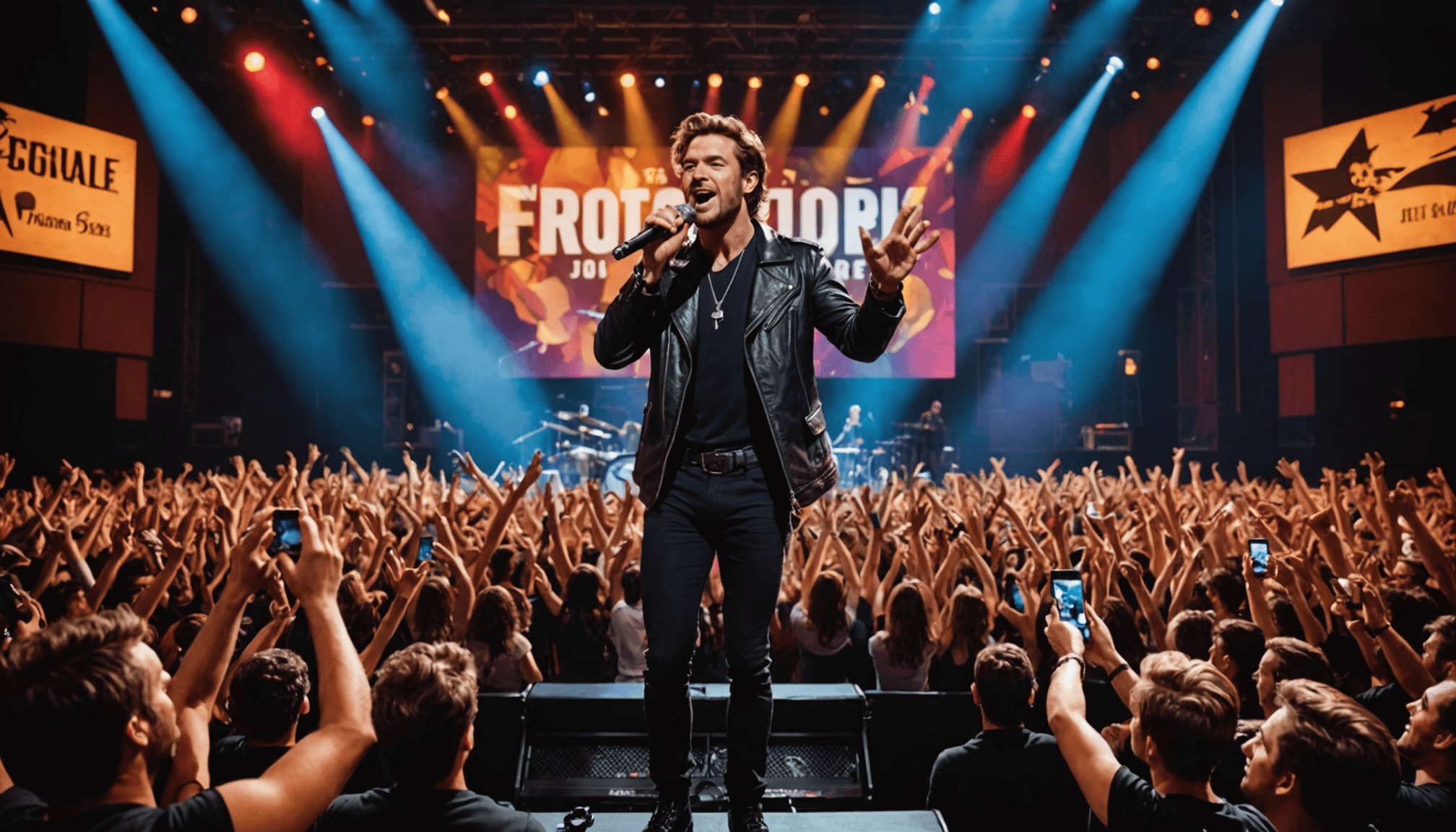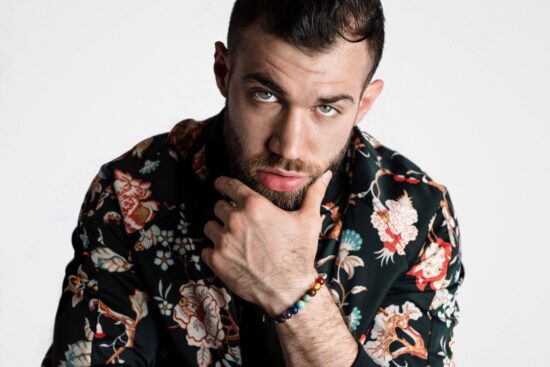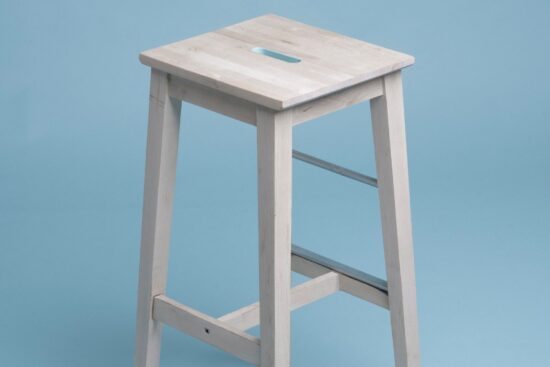

Koe Wetzel didn’t just stumble into success.
He built it—loud, gritty, and on his own terms.
In a music industry that often rewards polished personas and label polish, he’s taken the long road, grinding through bars in Texas, playing to hands-in-the-air crowds, and turning every gig into a step up.
Now? He’s sitting on an estimated net worth of $5 million as of 2024.
But here’s the thing—those digits only tell half the story.
His rise isn’t just a tale of chart rankings or flashy merch drops.
It’s a masterclass in mixing creative grit with business moves.
Beyond streams and record deals, he’s poured energy into live shows, launched his own branded venue, and found ways to keep leveling up—without losing his edge.
What makes it all work is more than the dollars.
It’s the lifestyle he’s curated, the mental resilience he’s built on tour, and the personal transformation that’s kept him going.
Understanding Koe’s journey isn’t just about pegging numbers to his name—it’s about seeing how financial planning, holistic wellness, and relentless drive come together in one unforgettable brand of musician.
Rising Through The Country-Rock Ranks
Koe Wetzel didn’t come from major label royalty or viral TikToks.
He came from Pittsburg, Texas—a small town where football and music hit hard—and it shows.
Born and raised in a working-class family, Wetzel was an athlete before he ever held a mic.
Football was his first scene, but music quickly took center stage after a few gigs with his band at local college pubs.
It wasn’t polished, and it didn’t need to be.
That rough sound? It stuck.
Blending country grit with rock distortion and lyrics that felt like unfiltered diary entries, Wetzel captured a unique audience—young, rebellious, craving authenticity.
His career didn’t take off overnight. He paid his dues by releasing music independently, playing packed-out dives, and growing his fan base one sold-out show at a time.
- 2016: “Noise Complaint” hit, grabbing attention across Texas and well beyond.
- 2020: Signed with Columbia Records—mainstream momentum picked up fast.
- 2024: Dropped “9 Lives”, debuting at #15 on the Billboard 200 and making waves on country charts.
That’s not just a sound evolution.
It’s identity building.
From a down-to-earth Texan to a Billboard-charting celebrity, Wetzel’s growth is fueled by authenticity—with every new project, he doubles down on who he is and expands what his brand can be.
The trick?
He never abandoned the attitude that got him here. Every milestone just widened his reach.
Unpacking Koe Wetzel’s $5M Net Worth
Five million dollars.
That’s the headline.
But dig in, and you’ll find that it wasn’t built in a straight line—it’s the product of diversified hustle and strategic execution.
Here’s the breakdown:
| Revenue Stream | Details |
|---|---|
| Music Sales & Streaming | Over 200,000 units sold independently since 2015; 100M+ streams on platforms like Spotify |
| Live Performances | Sellout shows across Texas and U.S.; boosted by 33-date “Sellout” tour in 2022 |
| Merch Sales | Branded apparel—shirts, hats, and more—serves dual purpose: income and brand identity |
| Business Ventures | Co-founded Koe Wetzel’s Riot Room in Fort Worth—restaurant, bar, and live venue |
And let’s not overlook the big turning point—his deal with Columbia Records.
That wasn’t just a symbolic move.
Big label backing means better distribution, bigger marketing pushes, and—yeah—a likely fat check upfront.
More importantly, it leveled up his exposure.
Suddenly, he wasn’t just a Texas favorite. He had the platform to turn national and global.
Each line on that spreadsheet reflects choices: hustle on tour, smart merch drops, building something you can scale (like The Riot Room), and not letting labels own your whole pie.
In this game, where streaming pennies rarely add up fast, it’s the hybrid model that wins.
And Wetzel’s gotten that down.
Every concert tee sold, every shot at his venue—that’s not just profit. It’s connection.
Fans want more from artists now.
How Wetzel Stacks Up In The Scene
Pull Wetzel’s name up beside other rising country-rock names, and a few patterns pop out.
He’s not leading with flashy endorsements or viral gimmicks.
His $5M comes from boots-on-the-ground economics.
Real fans. Real shows. Real platforms.
Where many acts rely heavily on their labels, Wetzel’s taken the opposite approach—build the base, then scale.
It’s a case study in sustainable, diversified career design.
Plus, he’s done it by balancing classic income like record sales with newer-age brand-first entrepreneurship.
Want to learn more details about his exact earning sources and career moves? You can see a full financial breakdown at Koe Wetzel’s Net Worth.
All of which is to say—Koe Wetzel’s net worth isn’t just a scoreboard.
It’s proof that blending grassroots loyalty with smart moves pays off.
He’s rewritten the blueprint on how to monetize creativity without burning out or selling out.
And we’re only just getting started.
Holistic Wellness in Celebrity Lifestyles and Its Role in Sustainable Growth
Balancing fame with fitness isn’t just a trend—it’s survival in today’s entertainment hustle. Touring musicians like Koe Wetzel face a unique challenge: keeping their bodies and minds in check while constantly on the move. It’s one thing to rip through a live set in front of thousands. It’s another to do it night after night without burning out.
The grind of the road can take a toll, so staying physically sharp becomes non-negotiable. Think about the stamina needed for a 90-minute, high-energy set. There’s also recovery, travel fatigue, and exposure to less-than-ideal food options. Most musicians build in fitness routines wherever they are—hotel gyms, makeshift stretches backstage, or bodyweight circuits between soundchecks. While Koe Wetzel hasn’t publicly detailed his wellness regime, his consistent performance schedule strongly hints at a lifestyle built on durability.
As far as fueling the machine, nutrition choices play a huge role. Many touring artists lean into simple rules: staying hydrated, limiting junk food, and loading up on protein-heavy meals to fight exhaustion. Even small wins, like packing nuts or smoothies over fast food, can keep energy up through long travel days. Again, while Wetzel’s specifics stay off the radar, the demands of his U.S. tours—like that 33-show sprint in 2022—would force any performer to pay attention to what fuels them.
Beyond logistics, it’s the discipline behind the scenes that sets sustainable careers apart. Wetzel’s ability to headline sold-out shows across Texas and keep a loyal fanbase engaged speaks louder than interviews ever could. It’s clear he’s found a way to balance the madness of touring with enough stability to stay sharp—mentally, physically, and vocally.
- Physical health = career longevity: Strong bodies endure grueling schedules
- Smart eating on the road: Fuel matters when you’re running on limited sleep and nonstop work
- Invisible routines: The best artists hide the hardest work behind the curtain
Koe Wetzel’s net worth may get the headlines, but it’s his behind-the-scenes sustainability that keeps the momentum going.
Mental Health in the Entertainment Industry
Let’s talk pressure. Fame isn’t just about flashing lights and screaming crowds—especially in the age of social media, when every move is dissected in real-time. For artists like Koe Wetzel, who’ve stepped from regional stages to the Billboard charts, maintaining mental stability becomes more of an art than a side note.
Spotlights can be heavy. One moment you’re performing in sold-out venues, the next your lyrics, lifestyle, or nightlife are headlines. The constant churn—fans wanting more music, critics weighing in, brands wanting partnerships—creates a pattern of relentless expectation. Combine that with late nights, long tours, and the emotional rawness required to create meaningful music, and it’s no wonder burnout is a real threat in the music biz.
Though Wetzel hasn’t openly shared personal stories around therapy or mindfulness, he fits the mold of artists learning to navigate this industry’s mental demands on their own terms. His album titles—like “Harold Saul High” and “Sellout”—hint at an inner dialogue about coping with fame and staying authentic in a commercial world. It’s storytelling, sure, but it’s also catharsis.
So what does getting ahead of burnout look like for creatives? Some turn to therapy, normalizing sessions between songwriting and soundchecks. Others lean into mindfulness—breathwork apps, meditation before shows, journaling. It’s less about zen and more about creating headspace. Because when your name’s the brand, keeping your head clear isn’t luxury—it’s maintenance.
In Wetzel’s case, sustaining that razor-sharp stage presence and continuing to drop records like his 2024 album 9 Lives takes emotional fuel. Tours might be rowdy, music might be edgy, but the foundation needs to be solid. Reflecting on the titles, the branding, and the chaos—there’s a method underneath it all.
- Social media amplifies the noise: Artists deal with public scrutiny faster and thicker than ever before
- Emotional well-being shapes creativity: Mental peace fuels productivity
- Support systems matter: From friends to professionals, what’s behind the curtain matters more than we often see
Koe Wetzel’s net worth isn’t just a number. It’s a by-product of years of sustaining mental toughness, working through the noise, and mastering his balance between the raw and the real.
Personal Development for Creative Professionals
In showbiz, standing still is the fastest way to disappear. Artists who outlast trends are the ones evolving beyond the studio—and Koe Wetzel proves exactly that. From grinding as an indie country-rocker in Texas to topping charts under Columbia Records, his path is a masterclass in personal growth shaping professional wins.
He didn’t just ride a wave—he made one. Since breaking out with “Noise Complaint,” Wetzel’s mixed grunge, country, and rock like a self-styled rebel brand, flipping the norm while building a loyal audience. But even more telling than his musical invention is what came next: moving into business. In 2023, he launched “Koe Wetzel’s Riot Room,” a Fort Worth venue that blends dining and music. That’s not just flair—it’s strategy. Tangibly expanding his brand, diversifying income, and rooting himself in a local scene that gave him his shot.
Wetzel’s decisions reflect a wider truth. For creatives, long-term relevance means thinking outside the tour bus. That often means learning on the fly—marketing your name, managing finances, taking smart risks. His jump to Columbia Records in 2020 didn’t just offer a boost in exposure. It opened doors to new resources, better distribution, and the muscle needed to scale up while staying grounded.
And here’s where it gets interesting: Wetzel hasn’t lost his edge. By keeping his artistic core intact—cranking out music that’s honest, gritty, and different—he’s reinvented himself without compromising. That ability to stay fresh while still feeling familiar is how artists extend their runway in this ultra-competitive industry.
- Creative reinvention = survival: Grow or fade—it’s that simple in music
- Diversification isn’t optional: Turning a name into a business plays into modern success stories
- Every leap counts: From indie status to a major label and into F&B—Wetzel’s journey blends art and ambition
Koe Wetzel’s net worth tells one part of the story. The bigger picture? It’s about the mindset behind the music—adaptable, entrepreneurial, and always betting on himself.
Fitness and Nutrition Focus for Musicians
Most folks see the stage lights, the noise, the crowd. They don’t see the toll it takes behind the scenes. For artists like Koe Wetzel, who pour raw energy into every single live performance, the physical demand is no joke. Touring isn’t just about city-hopping in a tour bus — it’s late nights, poor sleep, long drives, repetitive performances, and nonstop adrenaline spikes. That wrecks your system if you’re not physically and mentally charging yourself behind the scenes.
Backstage, stamina is currency. You either build it or burn out. A fitness routine can give artists the edge they need to keep pace. Strength training isn’t about looking ripped on stage; it’s about sustaining energy through back-to-back sets. High-intensity workouts, core stability exercises, and mobility training — those are the go-to’s. Why? Because they help reduce injury and keep energy levels high.
Your fuel matters, too. Think of nutrition as load-in for your body. Proper timing of meals, clean protein, complex carbs, and hydration — those aren’t “extras” anymore. They’re edge-maintainers, especially on tour. You eat garbage, expect to crash halfway through a setlist. On the flip side, fueling right keeps your brain sharp and your on-stage presence dialed in.
Very little info gets public on Wetzel’s day-to-day habits, but his performance momentum tells its own story. You don’t stay relevant and savage on stage without paying attention to your physical baseline.
Exploring Entrepreneurial Strategies in Music Careers
Here’s a question that comes up a lot: How do musicians really build long-term wealth beyond show biz checks and streaming royalties? Let’s talk real leverage. Koe Wetzel net worth didn’t hit $5 million just from headbanging or Spotify listeners. The man got smart with his brand, his people, and the moves he made off-stage.
A big swing? Opening “Koe Wetzel’s Riot Room” — a hybrid restaurant, bar, and live music venue in Fort Worth. That wasn’t just a passion project. It was a blueprint. You want stability in an unstable industry? Start building cash flow outside the studio. This move turned Wetzel from musician to operator overnight. The guy went from singing in bars to owning one.
Here’s how artists can throw similar punches that count:
- Merch drops: Not just T-shirts — limited releases tied to concerts or album launches. Think Shopify meets good tour storytelling.
- Licensing deals: Let film, TV, and advertisers rent your songs. That’s mailbox money, baby.
- Digital goods: NFTs might’ve fizzled, but access-driven digital content (exclusive tracks, online fan clubs) still moves the needle.
People don’t buy music anymore — they buy connection. Wetzel leaned into his rebel brand and built an entire ecosystem around it. Fans aren’t just showing up for music; they’re buying a piece of Koe’s world. That’s the power of personal branding.
And let’s be real — the ones who survive the volatility? They go beyond “stage-to-soundcheck” thinking. They start treating their brand like a business. From licensing to real estate to restaurants, you want to use your public image to unlock income on autopilot.
Where artists go wrong is assuming that talent is their only product. Wrong play. Talent gets you through the door. Business sense keeps you in the room — and gets you ownership.
Coaching Mental Resilience and Sustainable Growth in the Music Industry
Music careers are messy. That’s just the truth. You deal with flaky contracts, unpredictable income, ruthless public opinion, and tour fatigue that hits worse than jet lag. So how do you keep showing up? Mental resilience. That’s what separates hobbyists from full-time hitters. It’s not just about handling the highs, it’s about surviving the lows without crashing.
Let’s zoom out for a sec. Someone like Koe Wetzel didn’t just appear with a mid-seven-figure net worth and a Billboard-charting album. He’s had to dive headfirst into the pressure, screw up in public, navigate transitions (like signing with Columbia Records), and build a brand from scratch. That doesn’t happen unless you’re wired for the long game.
Now here’s how a lot of pros are staying grounded:
- Coaching: Not therapy-lite, but actual systems coaching for decision clarity, emotional discipline, and high-performance thinking.
- Peer mentorship: Building a circle of other artists, creatives, or founders who’ve been through the mud — and stayed in the game.
- Lifestyle calibration: Dialing back substances, sleep-wrecking habits, and burnout triggers isn’t “soft” — it’s strategic.
Wetzel doesn’t get publicly preachy about wellness or inner work — but something’s working. You don’t stay relevant album after album without protecting your mental bandwidth. His relentless pace suggests a behind-the-scenes system, whether that’s internal discipline or outside guidance.
Bottom line? No one wins over the long haul without clarity, stamina, and bounce-back muscle. Whether that comes from coaching, support systems, or just pure grit, musicians need a mental operating system that keeps their head in the game when everyone else is crashing.
Influences of Lifestyle Choices on Musician Finances
Ever wonder why two equally talented musicians end up with wildly different bank accounts? It’s not just label deals or streaming numbers — a lot comes down to lifestyle choices. Look close enough, and every money habit tracks back to how a person lives on the daily.
For artists like Koe Wetzel, the balance between partying like a rockstar and operating like a business owner is where the fork in the road lies. Blow every paycheck after tour? You stay broke. Reinvest into your brand, health, or ventures like the Riot Room? You build net worth you don’t need to tour forever to defend.
Creative careers are high energy, high volatility. That amps the need for intentional living. The artists stacking wins aren’t the flashiest — they’re the ones with boring consistency. Meal-prep over takeout. Cashflow tracking over impulse buys. Enough sleep over all-nighters post-show.
Success isn’t just about what hits the charts. It’s about what happens after the crowd goes home. Life design matters. And for someone like Wetzel, who’s managed to grow from local bars to top 15 on Billboard while building assets along the way, it’s clear: your habits off-stage echo through your earnings.




